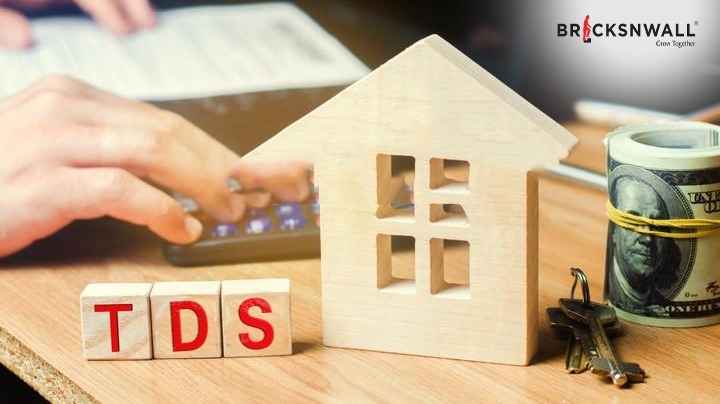TDS on purchase of property in delhi
Koheli

So, you're thinking of buying a property in Delhi. Congratulations!
It's an exciting process that can be enjoyable with the proper preparation.
But it also pays to be informed about the legal aspects of purchasing a
property. One of these is TDS on property purchases in Delhi—so let's talk
about it.
TDS stands for Tax Deducted at Source,
and you must pay when buying a property or house in Delhi or any other part of
India. While the general rules apply in every state, Delhi has its specific
regulations and applicable rates, so it's essential to understand how they
work. In this article, in this blog we will provide an overview of TDS on property purchases in Delhi and how they
affect you as a potential buyer.
What Is TDS and How Does It Affect Property Purchases in
Delhi?
If you're planning to purchase a
property in Delhi, you need to understand the impact of Tax Deducted at Source
(TDS). TDS is a form of taxation charged when a certain amount of money is paid
from one party to another. According to the Finance Bill of 2013, TDS is
applied to the sale of real estate if the sale price is greater than or
equivalent to Rs. 50,000. (Rupees Fifty Lakhs).
The property seller has two options
for paying TDS: either through a deduction from payment or a deposit with the
government. If you're an individual or Hindu Undivided Family, you must
provide your Permanent Account Number (PAN). Otherwise, Tax can be deducted at
a flat rate of 20%. Businesses and organizations not eligible for PAN are
liable for higher tax deductions.
No matter which option is chosen,
it's essential to understand that as the buyer, you will now be liable to pay
what's called Margin Money to cover TDS payments made by the seller. This
Margin Money needs to be paid within seven days of agreeing—otherwise, you'll
be subject to late fees and interest payments.
Who Pays TDS on Property Purchases in Delhi?
If you're buying a property in Delhi,
you need to know who pays TDS (Tax Deducted at Source). Depending on the value
of the property purchased, either you or the seller will be liable for this Tax.
For properties worth up to ₹50 lakhs,
the buyer is responsible for paying TDS. However, on properties with higher
values—that is, ₹50 lakhs and above—it's the seller who needs to pay the Tax.
It's important to note that for both cases, additional details need to be
taken into account, such as whether there is an ongoing registration or an
id-based settlement process.
The property buyer must deduct the TDS
when the conveyance deed is executed or, if an advance is being paid before the
conveyance deed, at the time the advance is paid. Within 30 days at the end of
the month, the Tax is thus deducted, and the buyer must deposit the TDS amount
to the credit of the central government.
Conclusion
Suppose the property is rented out and
accrues TDS. The capital value on which TDS has to be deducted remains
unchanged for the next 30 years. However, no deductions are allowed under
Section 24 of the Act in the case of rented-out property. If income from house
property (HPR) is Rs 2 lakhs or above, then a TDS of 15% needs to be deducted
by a landlord. This can be claimed as a deduction from total income. If a
taxpayer has invested Rs 10 lakhs or above in HPR, he can claim an exemption
(Section 80EE). HPR includes any property such as land, building, flat, house,
shop, and others.
Finally, it's important to remember that failure to pay TDS when required can put you in trouble with the law. Therefore, getting help from an expert when purchasing a property in Delhi can be invaluable. Hence, you ensure all necessary taxes are paid correctly and on time.




